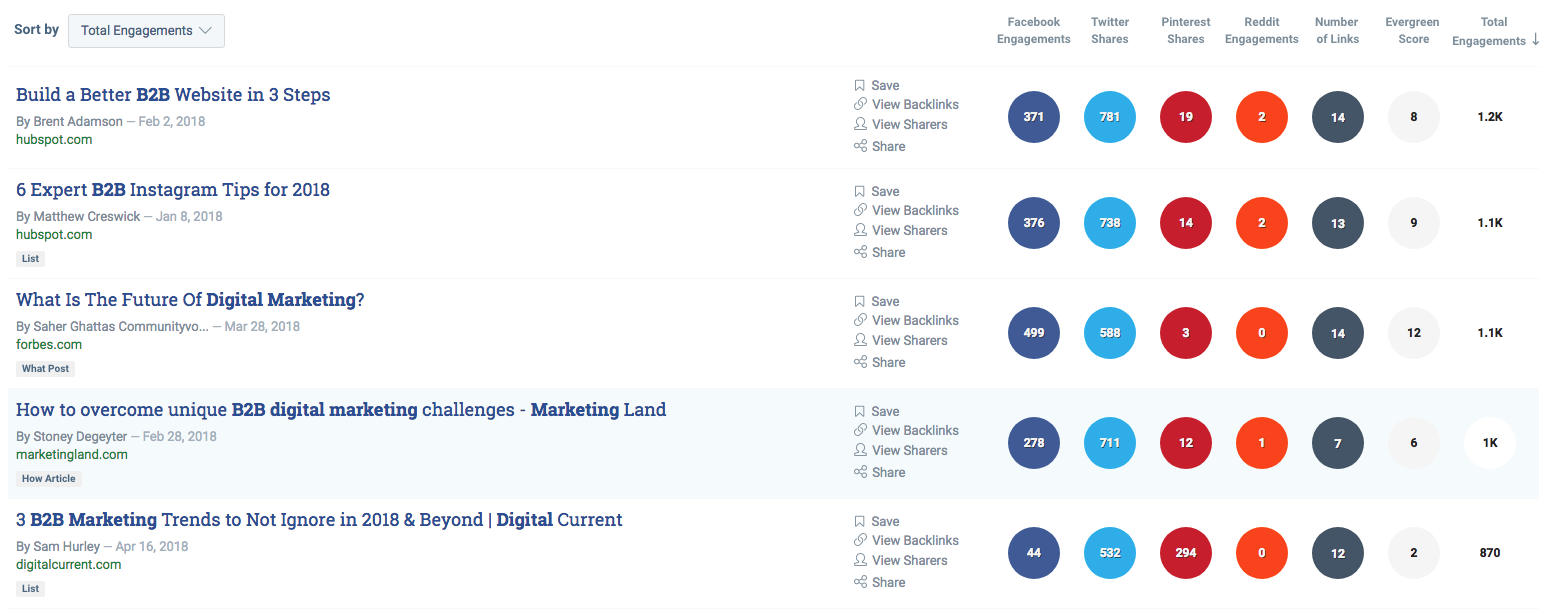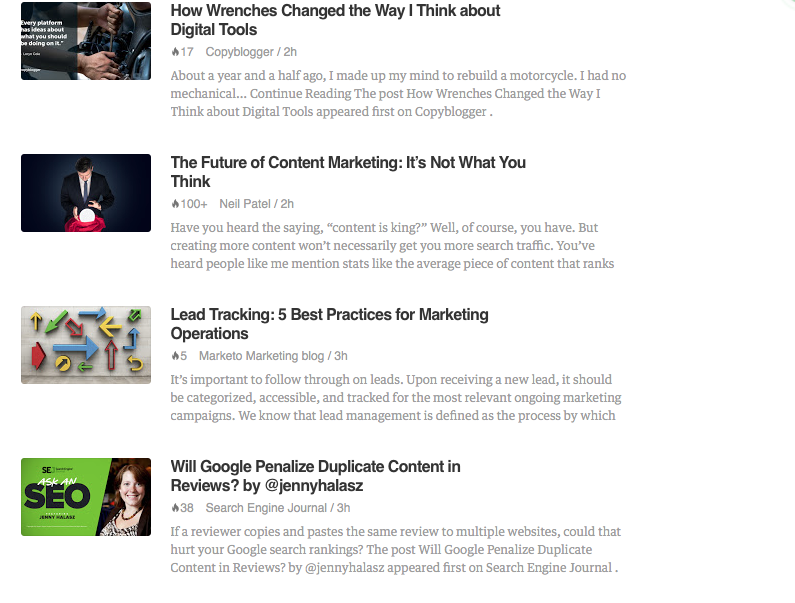In the early days of marketing, the only tools you needed were a pen, piece of paper and a strong cup of coffee. Fast forward to today and the average marketer now uses five different marketing and media tools to accomplish their goals.
There are a lot of moving pieces that make up your B2B marketing strategy, from social media and blogging to search engine optimization (SEO) and email marketing. You need the right tools to make sure your marketing is successful and actually leads to sales.
Today, we’re sharing some of our favorite marketing tools—tools we would recommend to anyone looking to improve the effectiveness of their B2B digital marketing.
1. Buzzsumo
If you’re running out of content ideas, Buzzsumo shows you what content is working well in your industry. The tool allows you to search by keyword or topic to find the most popular or shared content. You have the ability to filter by content type, date, social network, etc. This helps you create content that better engages your target audience.

2. Feedly
There are a ton of resources available online for B2B marketers. The challenge is keeping up with the onslaught of content. Feedly is a news aggregator tool that enables you to read, share and organize content from your favorite marketing blogs, publications and online sources—in one convenient news feed. The tool helps you stay informed and up-to-date on the latest industry or marketing news and trends.

3. HubSpot
Over the last decade, HubSpot has emerged as a major contender in the marketing automation space, and for good reason. The company offers an all-in-one marketing software that includes:
- Blogging
- Social media
- Lead management
- Landing pages
- Marketing automation
- Calls-to-action
- Analytics
HubSpot’s marketing software offers everything you need for successful B2B digital marketing in one place. We work with many different marketing automation platforms, with HubSpot being the foremost among them.
It’s important to connect with prospective buyers at every stage of the research and buying process. Marketers can use HubSpot to develop lead nurturing workflows that engage prospects throughout the buyer’s journey. It’s easy to build emails and landing pages in the platform, and you can find all the insights and metrics you need to make sure your marketing is working.
4. Google Analytics
Analyzing your website traffic is key to improving the effectiveness of your current marketing strategy and knowing when it’s time to make improvements. Google Analytics offers valuable insights into who visits your website, how they arrive at your website and what pages they spend the most time on. The “All Traffic” tab shows you a collective overview of all sources of web traffic—whether it’s social media, organic search, paid search or email.
All of this information helps you create a more customized and relevant site experience for your visitors. It is also useful for deciding which marketing channels you should focus on. If most of your traffic comes from Facebook, you could share more blog posts on this platform.
5. Hotjar
In order to achieve your digital marketing goals, you need to know what’s working and what’s not working on your website. A heat mapping tool, Hotjar lets you see how visitors are really using your website. Visual reports and individual session recordings show you where visitors are coming from, what parts of your website they interact with, and where they were when they left your website. You can see what design elements have a direct impact on conversions and make changes as needed.
There’s no such thing as a “one size fits all” marketing platform or tool. Take the time to figure out what works for you and your business. This process may take awhile, but it is an essential part of any successful marketing strategy. Let us know if you need help deciding on the best tools for your business. We can answer any questions and provide recommendations based on your specific needs.
In B2B tech marketing, tactics should be thought of as part of a larger whole, rather than separate pieces. By strategically integrating new and traditional marketing tactics, your marketing program become more effective and cost efficient. To learn more about how you can increase your lead generation and overall marketing, download our free eBook: Modern Integrated Digital Marketing—A Better Path for B2B Technology Marketers.

